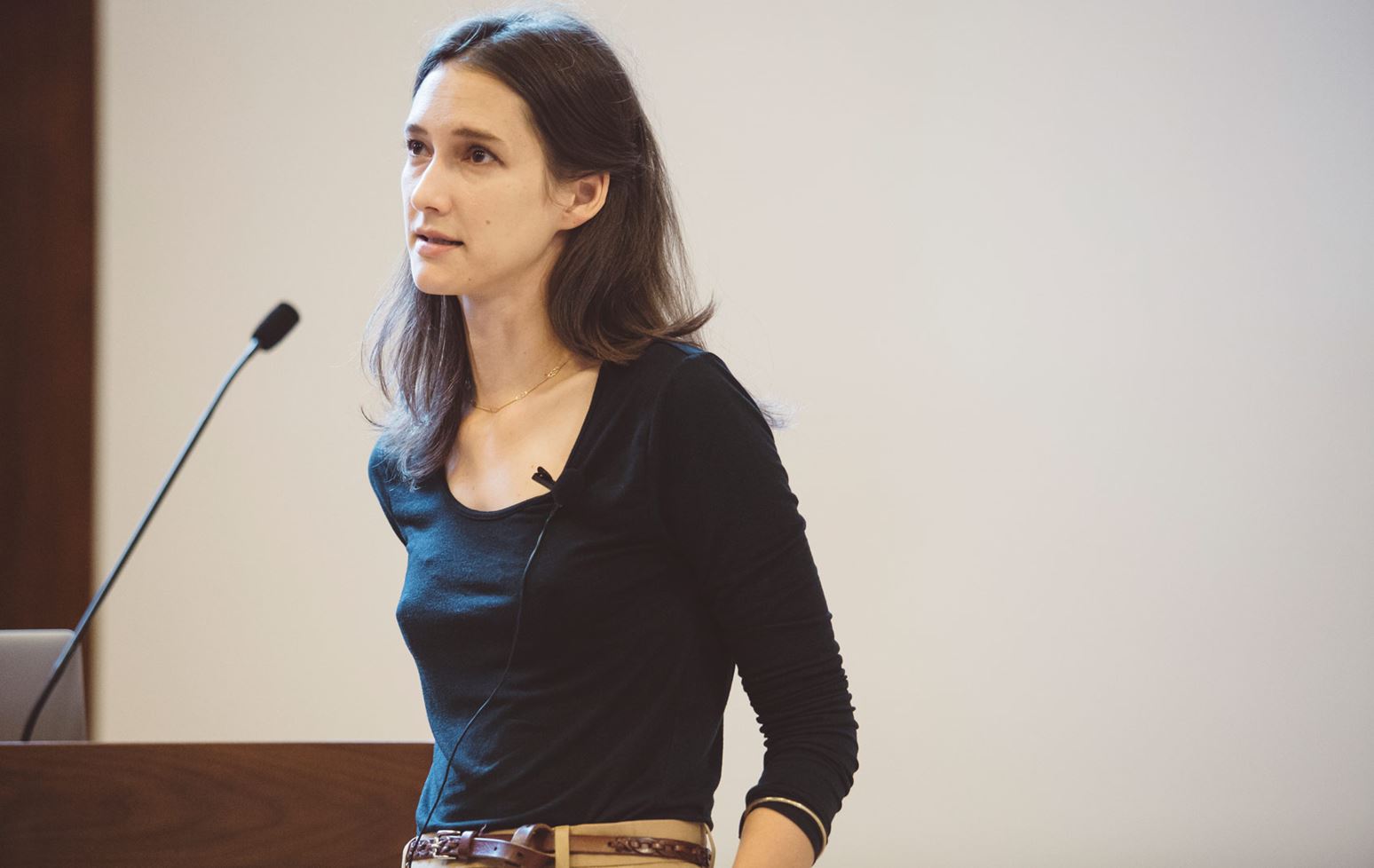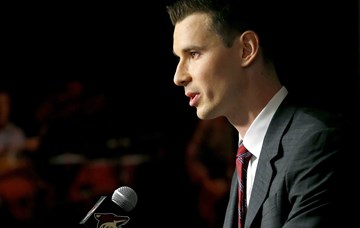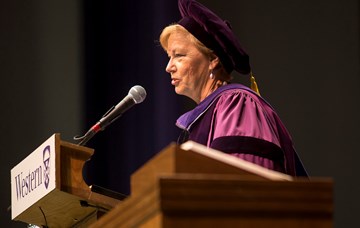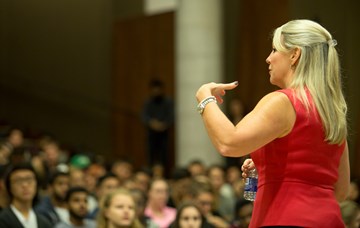Professor Ashley Mears’ research is in an area many of her audience members are very familiar with – nightclubs.
Mears spoke to Ivey’s HBA students about gender roles in nightclubs and the exploitation of women in these spaces. A sociology professor at Boston University, Mears spent one year studying big city nightlife and the VIP club-goers who frequent these glamorous hotspots.
VIP nightlife, Mears said, is an industry run by men, for men, but on women. The men are rich and in control. Women are like decorations, brought in to attract the big-spending male clients who happily spend thousands of dollars on champagne and vodka.
The more beautiful the women, the better the club, and the more money clients are willing to spend.
“In her talk, Dr. Mears focused on how a culture of consent develops when people don’t speak up, and how such a culture can lead to the exploitation and/or exclusion of women from particular social spaces,” Ivey Professor Claus Rerup said. “Dr. Mears provided a language for thinking about these thorny topics, and creating more inclusive spaces at work, at home, and in society.”
Mears’ talk was for the Leading People and Organizations course and made possible by support from The Gilbert & Margaret Clarke Fund. She gave HBA two questions to think about. First, what is the value of women’s beauty in these social spaces? And second, why do women work for free?
The promoters in charge of recruiting the women are paid depending on the women’s beauty – upward of $1,000 a night. The women, however, aren’t.
They do receive free drinks and gifts and experience a lavish lifestyle they may otherwise be excluded from. But women generate far greater profit for men than their free drinks are worth, Mears said. After all, successful nightclubs might make up to $20 million a year.
Mears encouraged HBA students to make their sections, friend groups, and future companies inclusive. She warned them to be aware of what is implied and the stereotypes that are reinforced at these events: They contribute to the gendered construct where female bodies are objectified, and not everyone has access to enjoy a night on the town.



